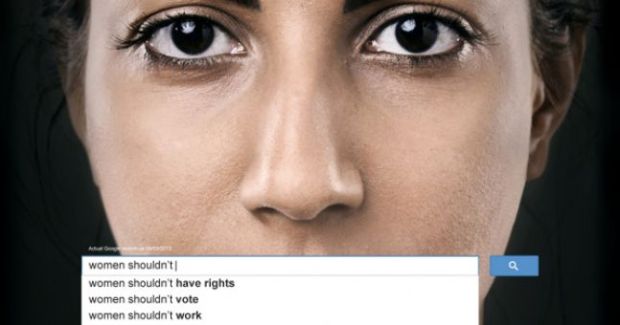At some point in our adult lives we have all told a lie. There are millions of different reasons for lying in a given situation, but could it be ethical to tell a lie? When it comes to lying men and women differ in their motivations. Discourse has been encoded by males for centuries with them holding the primary positions of power. According to some ethical theorist women lie to conform to male requirements. 
A article by Susan Barash Why Women Lie Differently Than Men, published in The Huffington Post gives us some insight into women and lying. Barash conducted a study for her book Little White Lies, Deep Dark Secrets, she found that:
- More than 80 percent of women advocate beneficial lying — meaning that the lie is more important than the truth.
- 80 percent of interviewees believe that women lie more cleverly and successfully than men.
- More than 75 percent of women feel justified in their lie.
- 70 percent of women attribute ‘living a lie’ to how they’ve been positioned in marriages, the workplace, financially or as mothers.
- 75 percent of women say they lie about money to boyfriends, husbands and family members.
 These reasons are interesting on their own but why do women feel inclined to tell lies? Barash give a few great reasons as to why however Gillian Michell in the book Ethics In Human Communication looks at the ethicality of “Telling it Slant” (lying).
These reasons are interesting on their own but why do women feel inclined to tell lies? Barash give a few great reasons as to why however Gillian Michell in the book Ethics In Human Communication looks at the ethicality of “Telling it Slant” (lying).
Michell states that the “constraints of a sexist society frequently require that women tell it slant” (pg 221). She believes that lying is ethically excusable and justifiable. Why would she think lying would be ethical for certain situations women are involved in? Michell is following Muted Group Theory by theorist Emily Dickinson. This theory states “the language of culture does not serve all its speakers equally. Women are “muted” because the words for speaking are not generated from or descriptive of women’s experiences. Language women use is developed from a male perception of reality” (pg. 210).

Michell argues that “telling it slant” is often the most effective way for a women to exchange information in a sexist setting. The best way to get a point across. She also believes that women’s rights and options are so constrained in male dominated conversations that women are forced to tell it slant in order to survive or be successful in society.
Women were not seen as equal partners in the human race for centuries. Women were not even able to vote in political campaigns until August 18th 1920. With such a time divide of women being equal could be ethical for women to “tell it slant” to ‘protect’ men from view of reality that they could not cope with? What about lying to protect others from being hurt?
An example Michell leaves us with is a women was to attend a meeting however because of painful cramps due to her period she didn’t feel well enough to attend a meeting. She called her boss and said she could not make it to the meeting because of a severe migraine because she did not think her boss would take her seriously if she mentioned her period. Is this lie ethically wrong? Does she have to tell it slant in this situation? Women still have unequal pay in the workplace and have pink tax. Women have to be strategic to obtain and keep a adequate place in society when it comes to the workplace and their rights. Now you have some explanations into why it would be ethical to tell a lie. Men and women have to tell it slant at time to keep from hurting others feelings however women are at more of a disadvantage when it come to the workplace. Sometimes lies like the one mentioned before are necessary to avoid scrutiny.

Its up to you to decided the ethicality of lying in given situations. Would there be a situation where you would find it ethical to lie?
References:
Barash, Susan S. “Why Women Lie Differently Than Men.” Huffpost Women. n.p., 08 June 2013. Web. 24 Apr. 2016 http://www.huffingtonpost.com/susan-shapiro-barash/why-women-lie-differently_b_3007452.html.
Henson, Rich. “11 Surprising Statistics About Women In The Workplace.” Resourceful Manager. Employee Engagement, 19 Apr. 2015. Web. 20 Apr. 2015. https://www.resourcefulmanager.com/women-workplace-statistics/.
Johannesen, Richard L., Kathleen S. Valde, and Karen E. Whedbee. Ethics in Human Communication. 6th ed. Prospect Heights, IL: Waveland Press, 2008. Page 65.

